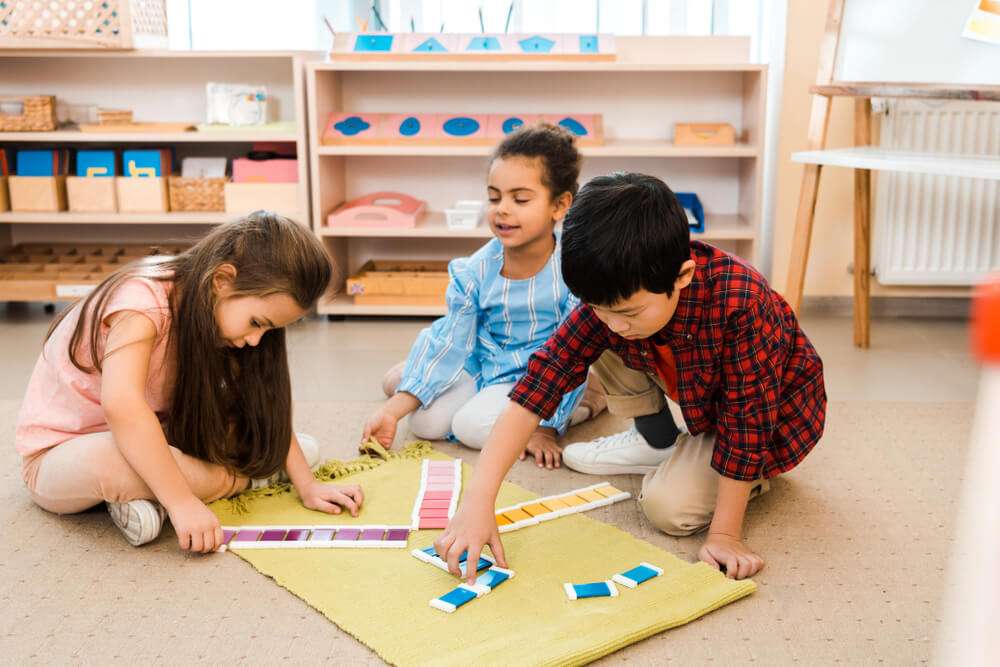Introduction:
Montessori education is a widely acclaimed educational approach that has been transforming the lives of children for over a century. Developed by Dr. Maria Montessori, an Italian physician and educator, this method emphasizes independence, self-directed learning, and hands-on exploration. With its unique philosophy and student-centered approach, Montessori education offers a myriad of benefits that foster holistic development and equip children with lifelong skills. In this article, we will delve into the advantages of Montessori education, exploring its impact on cognitive, social, emotional, and physical aspects of a child’s growth.
1. Cultivating a Love for Learning
Montessori education encourages a deep-rooted love for learning within each child. By providing an environment that nurtures curiosity and exploration, students develop a natural motivation to seek knowledge. The emphasis on hands-on activities and individualized learning, such as the Montessori Grammar Symbols worksheet, fosters a sense of joy and fulfillment in the learning process, igniting a lifelong passion for acquiring knowledge.
2. Developing Independence and Self-Discipline
One of the fundamental principles of Montessori education is promoting independence and self-discipline. Through a carefully designed environment, children are empowered to make choices and take responsibility for their actions. Montessori classrooms provide opportunities for practical life activities, such as pouring, dressing, and cleaning, which enhance fine motor skills and instill a sense of order and autonomy. This freedom cultivates self-discipline, concentration, and a strong sense of personal responsibility, equipping children with invaluable life skills.
3. Fostering a Sense of Community and Collaboration
Montessori education emphasizes the development of social skills and cooperation. Multi-age classrooms enable older students to mentor younger ones, fostering a sense of community and promoting empathy and respect. Through collaborative projects and group activities, children learn to work together, resolve conflicts, and appreciate the value of teamwork. These experiences lay a strong foundation for healthy social interactions and effective communication throughout their lives.
4. Encouraging Creativity and Critical Thinking
In Montessori classrooms, creativity and critical thinking are nurtured through open-ended activities and problem-solving opportunities. Children are encouraged to explore their own interests and develop their unique talents, rather than following a rigid curriculum. Montessori materials, such as the pink tower, binomial cube, and sensorial materials, stimulate cognitive development and enhance analytical thinking. By fostering creativity and critical thinking, Montessori education prepares children to become adaptable and innovative problem solvers in an ever-changing world.
5. Promoting Emotional Intelligence and Self-Confidence
Montessori education recognizes the importance of emotional intelligence and aims to develop a strong sense of self-confidence and emotional well-being in children. The freedom to explore and learn at their own pace allows children to develop a positive self-image and a sense of accomplishment. The Montessori approach also encourages students to express their emotions, fostering self-awareness and empathy towards others. This emotional intelligence equips children with resilience and the ability to navigate through life’s challenges.
VI. Nurturing a Lifelong Love for Nature and the Environment
Montessori education integrates nature-based activities, such as the animals worksheet, into its curriculum to strengthen the bond between children and the environment. This worksheet serves as a tool for children to learn about various animal species and their habitats. Through engaging with this hands-on activity, children not only develop knowledge about different animals but also cultivate a deeper appreciation for the natural world. By connecting children with animals and their environments, Montessori education nurtures empathy and a sense of responsibility towards all living beings. It empowers children to become environmental stewards who value and protect the delicate balance of our ecosystems.
Conclusion:
Montessori education offers a holistic approach to learning, empowering children to become self-directed, independent, and lifelong learners. Through its emphasis on hands-on exploration, collaboration, and individualized instruction, this educational method nurtures cognitive, social, emotional, and physical development. By cultivating a love for learning, fostering independence, promoting community, encouraging creativity, developing emotional intelligence, and nurturing environmental consciousness, Montessori education equips children with the skills and values necessary to thrive in the 21st century. It is an educational philosophy that celebrates the uniqueness of each child, laying the foundation for a lifetime of success and fulfillment.










